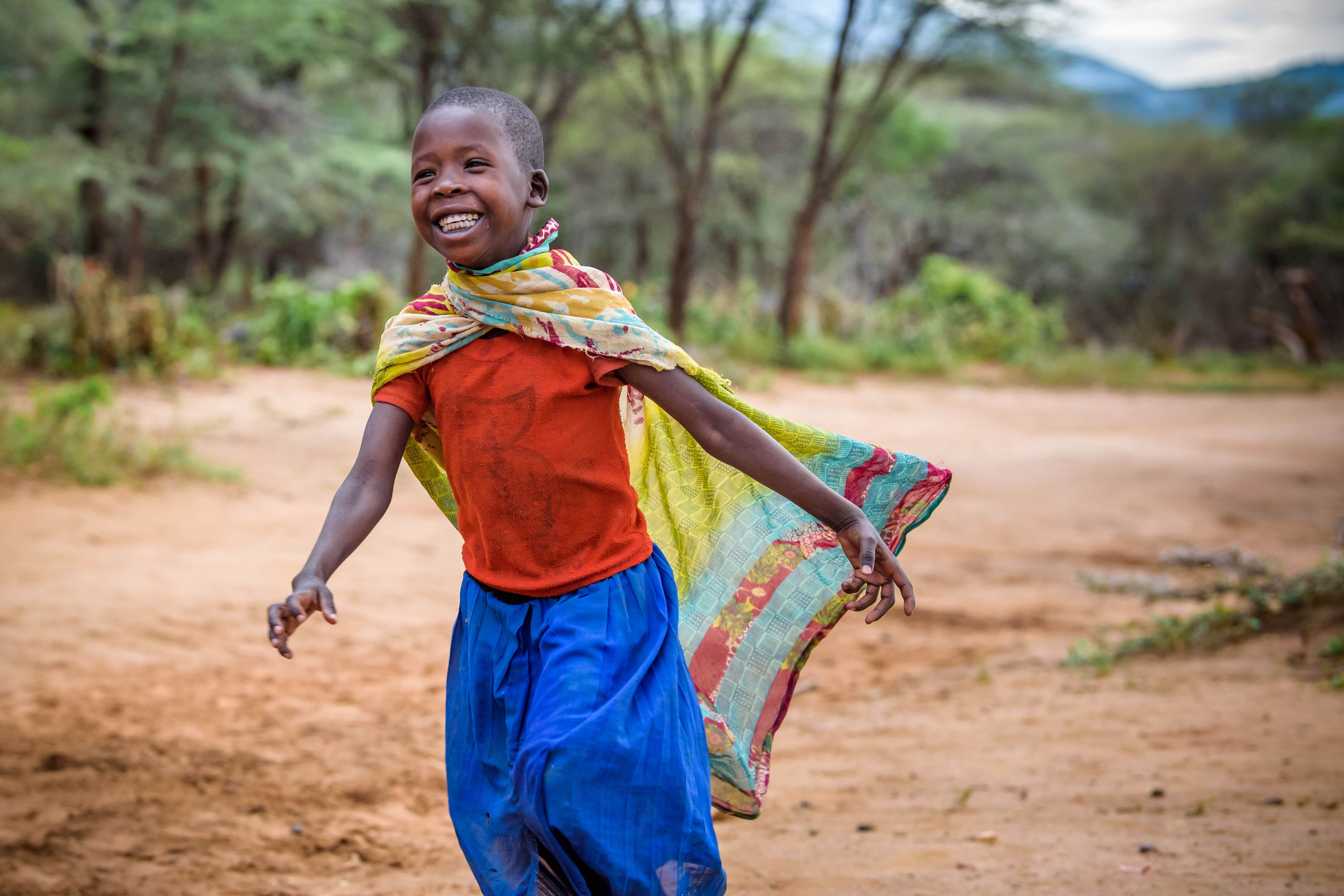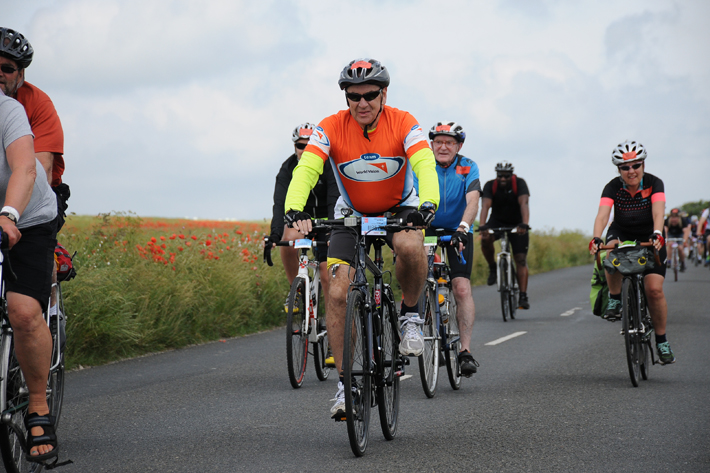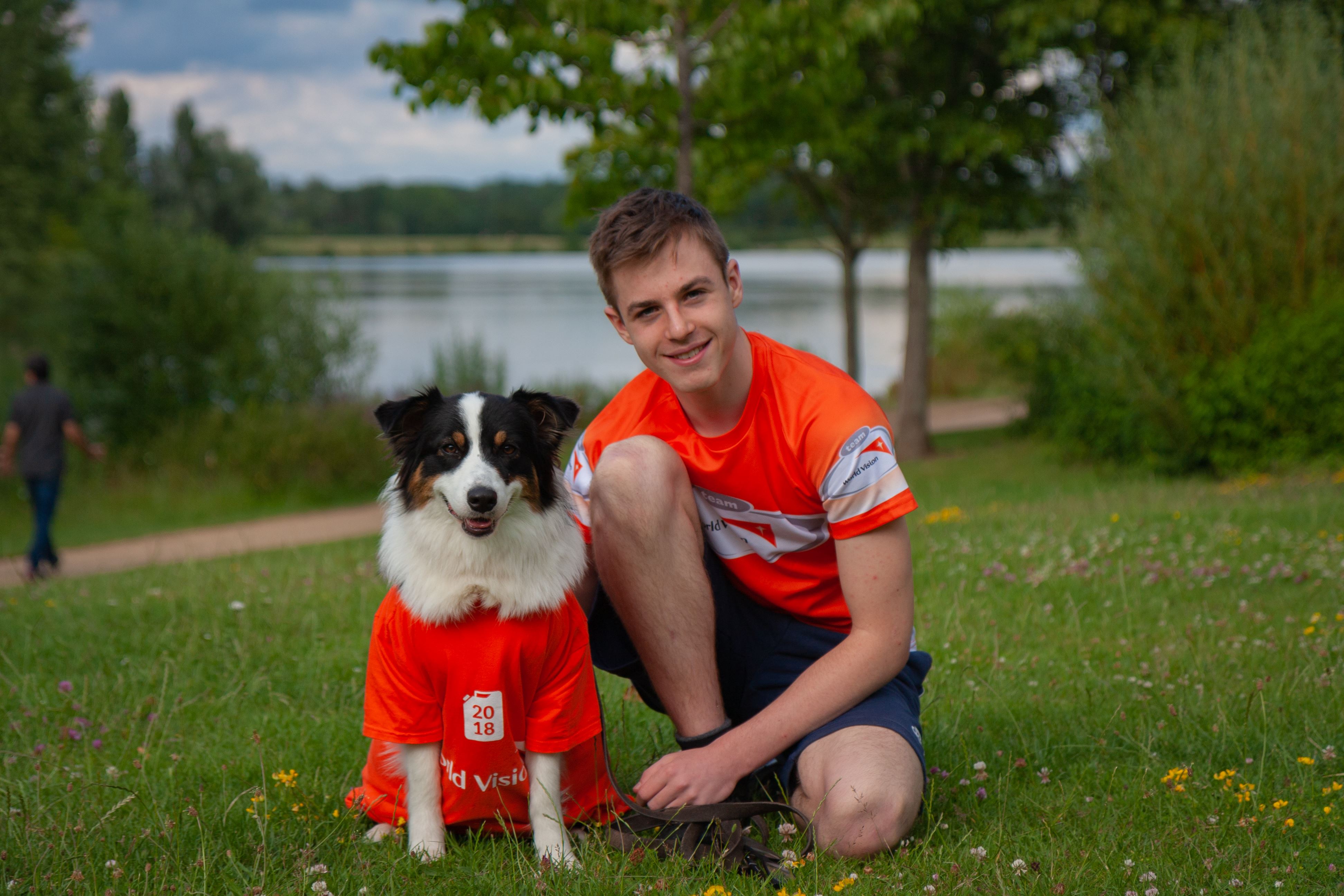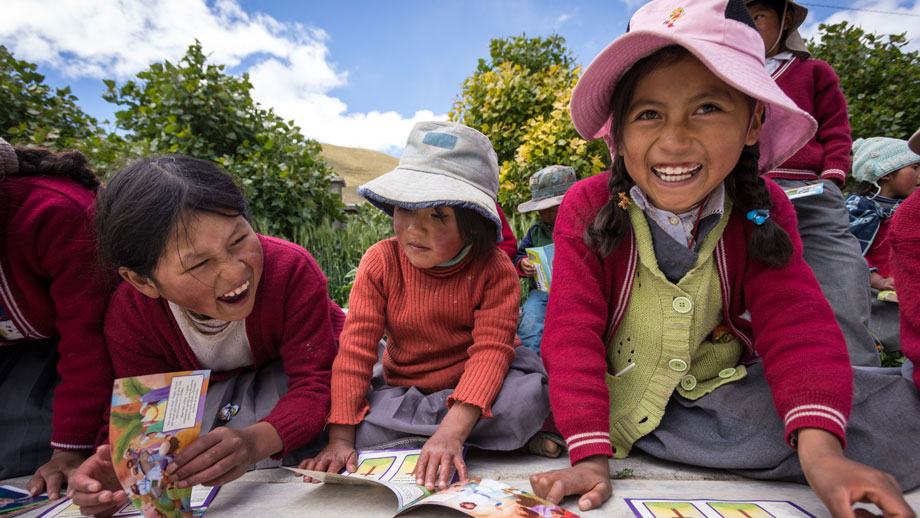
Transform children's lives on World Book Day
Our staffer shares ideas for celebrating World Book Day at home this year
World Vision’s Community Fundraising champion, Delphine Wolfe recalls her favourite childhood book and shares ideas for celebrating World Book Day at home this year.
One of the stories I used to love to read as a child in France, was about a boy who got punished for littering!
He was throwing his sweet wrappers on the floor. When an ancient oak tree challenged him about his actions, the boy simply didn’t care: “What harm can a small plastic wrapper do?” he said. The oak tree got angry – so did I – for the boy’s lack of respect to the environment. So, the tree summoned the wind to gather all the sweet wrappers that children across the world threw negligently on the floor and covered the poor boy from head to toe with the pile of sticky bits of foil and plastic. I remember how satisfied I felt to see the boy’s surprised and disgusted look as he promised to never do this again.
If they did World Book Day costumes back in the 80’s, that would have been a fun outfit to make indeed!
I’m pretty sure this story fuelled my passion to help protect the environment and its people and had an impact on my career choices.

The importance of World Book Day
The books we read as children - but also in adulthood - can have profound effects on our lives. Whether a child reads for pleasure or to learn new things, books are vital for children’s development and wellbeing.
Sadly, in many countries around the world, children are not being taught to read. They don’t have access to books or are not sent to school. They’re being deprived of their rights to learn and grow – but also to dream through the power of stories.
World Book Day is on the 4th of March 2021. It’s an opportunity to celebrate the importance of books and stories in children’s lives. It also gives us the chance to raise awareness about literacy levels in more fragile countries and help some of the most vulnerable children have a better future.
Our work for children's education
Thanks to our generous supporters, World Vision works with vulnerable communities to train teachers, provide good classrooms, work with community leaders and families to highlight the benefits of education and, in some areas, set up reading camps for children.

Rabson’s journey to literacy
Chapter 1
Rabson, now 13, from Zambia has learned to read thanks to World Vision’s reading camps. From the age of just seven, Rabson spent his days chasing after the families’ four cows. Herding was his life for nearly four years.
"We believed that sending Rabson to school was a sheer waste of time. He barely spoke,” says Mkonda, Rabson’s mother.
“It used to hurt me a lot when I saw my brother go to school while I looked after the cows because I wanted to learn also,” says Rabson.
Zambia has made progress in improving access to primary education, but in some remote places, a shortage of classrooms and low enrolment levels means that illiteracy still remains high.
To support the government in improving literacy levels, World Vision has been promoting readings activities for children both in and out of school. This includes encouraging parents to set up reading corners and training community volunteers to set up reading camps.
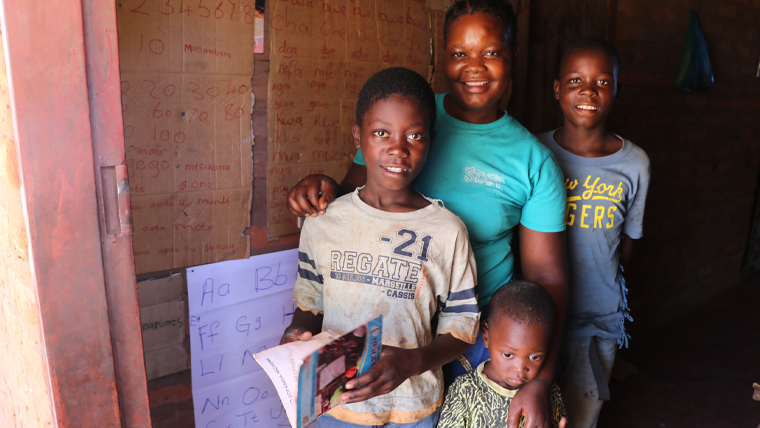
Plot twist: Reading corners
In 2018, Rabson’s mother, Mkonda, learnt about reading corners at home. Mkonda herself only reached grade nine before finances forced her to drop out of school. Her husband only reached grade eight.
“I knew that the reading corner would help me educate my children. So immediately after the training, I came home and made the reading corner,” says Mkonda.
Her desire for her children, White 15, Rabson 12, Blessed 8, and Robert 3, to have a better education than their parents propelled her.
“Every evening, I sat the children down and started teaching them. I noticed that Rabson started to take a keen interest in the lessons,” she says. “My husband at first thought I was wasting time, but he never stopped me.”
Literacy boosts Rabson
“After three months, Rabson learned the alphabet, vowels, and started to put words together. I was so excited with the results,” says Mkonda. “My husband and I also noticed that he was speaking more freely and engaging with his brothers.”
Rabson remembers the earlier days: "When I saw my mother making the reading corner, I was thrilled,” he says. “I knew that now I would learn. But it was hard in the beginning.”
In just a year, children in Rabson’s area have significantly improve their reading skills in comparison to similarly disadvantaged children outside the programme area. Literacy levels reached up to 70% compared to 40% in children outside the programme.

Character development: Rabson starts school
Finally, at 12 years old, Rabson started to read on his own. His parents decided that it was time to enrol him in school. Unfortunately, after just three months in school, COVID-19 hit, and schools were suspended. However, the family continued to use their reading corner.
“I borrowed books from the reading camp to continue to teach Rabson how to read,” says Mkonda. “When I look at him now, I am so proud. He is able to read and he expresses his thoughts freely. I just wish I had started him earlier.”
With schools open again, Rabson now looks forward to school, and on Saturday, he attends a reading camp session held at a church near his home.
“I enjoy going to reading camps; we play, sing and read with my friends,” says Rabson. “And when I am at school, I enjoy playing with friends.”
Satisfying ending: Reading for a better future
When asked what he wants to be when he finishes school, Rabson confidently replies, “I want to be a teacher,” much to the delight to his mother.
Village Leader, Steven, says child cattle herding, a generations-old practice, which stopped children accessing education, is less common since World Vision’s reading activities started in his village.
“The reading camps they [World Vision] have helped set up, and reading corners in homes, are helping our children access education. As a traditional leader, I have made it mandatory in my village for parents to borrow books for children to read. Children now are showing parents that they can be more than just cattle herds,” he says.

Ideas: How to celebrate World Book Day at home
During the COVID-19 school closures, Rabson was able to continue to read at home in the family’s ‘reading corner’ using books his mum could borrow from the reading camp.
Many parents in the UK have struggled to encourage their children to keep reading during lockdown. Whilst most families have access to online resources, nothing replaces the pleasure of turning the pages of a new book, revealing colourful illustrations, page after page.
Here are some simple World Book Day activities you can try at home.
- Why not set up a comfy reading corner at home like Rabson’s family? Fill it with favourite books, or new ones borrowed from the local library (many are still operating even if not fully open).
- Organise a COVID-safe book-swap group – or find your nearest free book exchange - to keep children excited about reading new stories. This could also help to keep your children connected with their friends as they could share what they liked about each of the stories.
- If your children have ‘outgrown’ their library, you could sell your books online. You could even raise money at the same time, to help children like Rabson. It’s easy to sell and fundraise with Virgin Money Giving. Virgin Money Giving uses the Ziffit app to help you sell your unwanted books (and CDs, DVDs, Blu-rays and games) easily. So, don’t let old stories gather dust on your shelves, give them a new life – and help vulnerable children at the same time
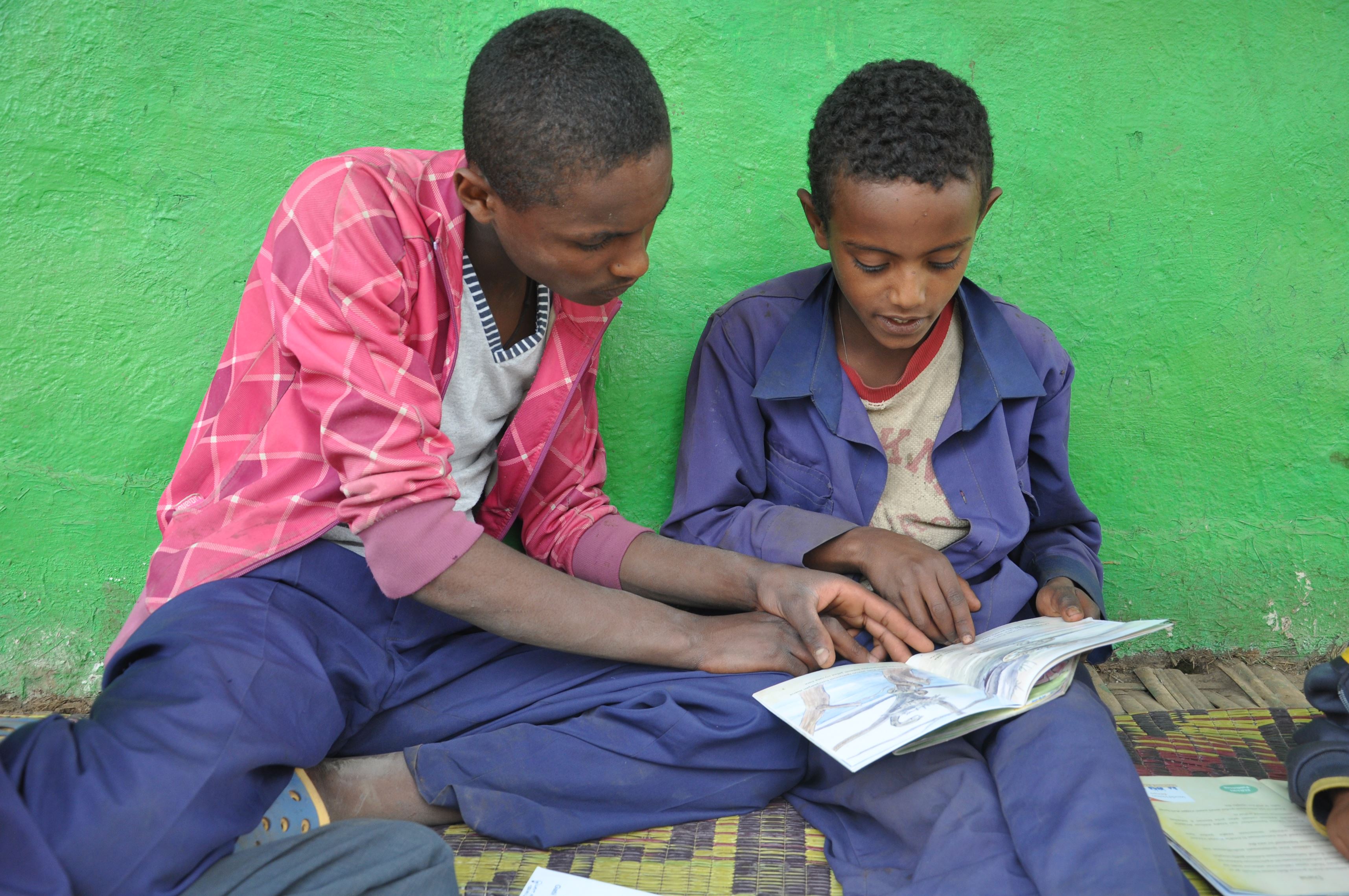
Inspiration: Free Fundraising webinar
If you’re new to fundraising or interested in learning more about how to organise an online fundraising event, join our free online webinar on Monday 15 March from 7-8pm (GMT).
We have a panel of fundraising and marketing experts ready to give you a step-by-step guide for setting up your event. You’ll also find inspiration for creative and fun events to connect with your friends, family and your community virtually. And you’ll get a list of tips and advice on how to promote your fundraiser to have a successful event.
Webinar registrations are now closed.
Epilogue
Encourage your friends and family to share their love for books this World Book Day by posting this blog on your social media channels using the icons below.
Don’t forget to tag us too using @worldvisionuk so we can give you a shout out.
Happy World Book Day!

